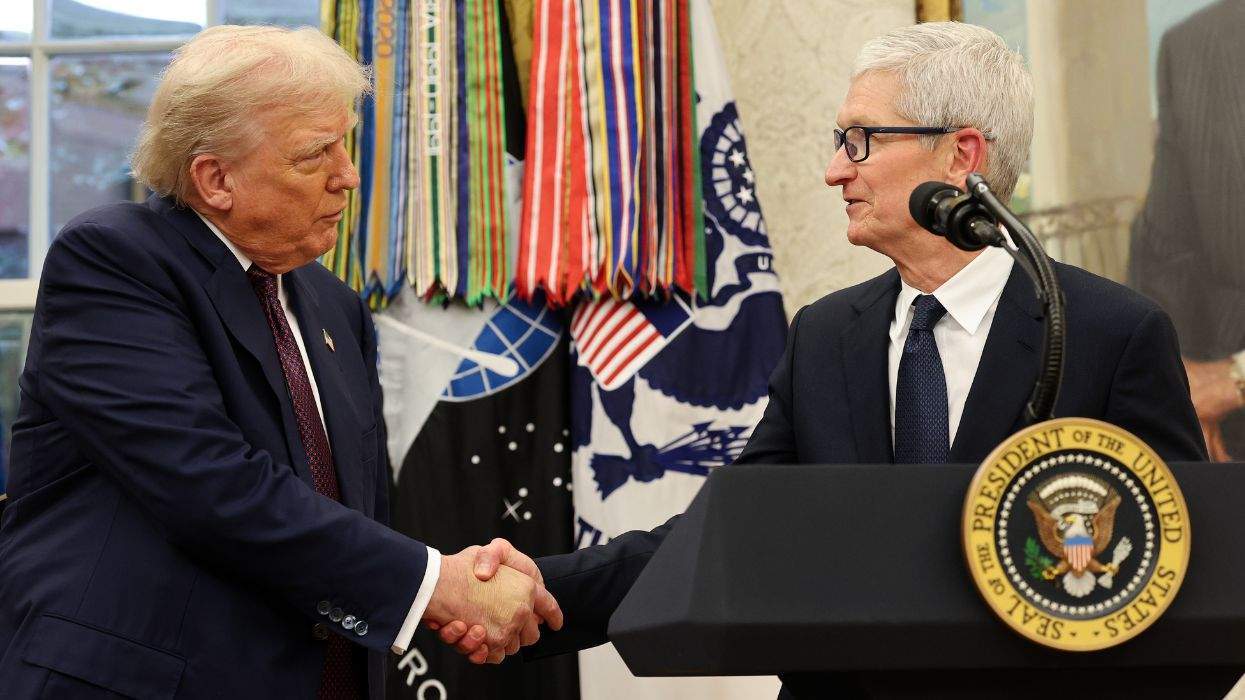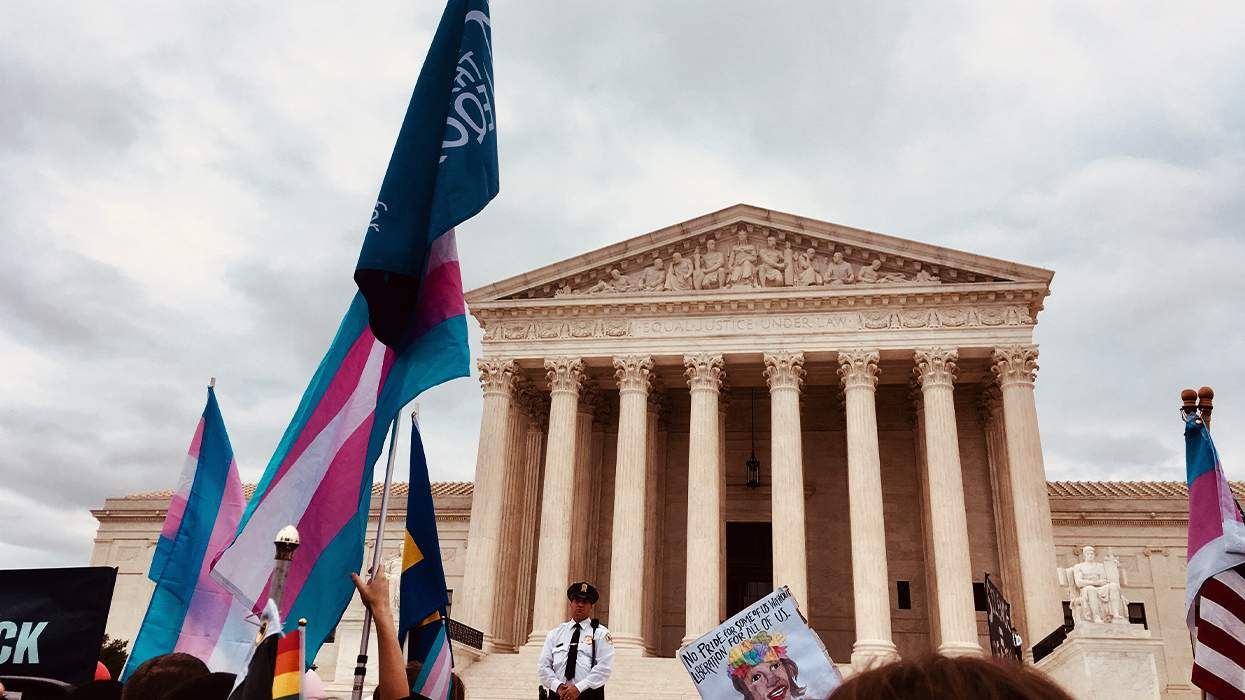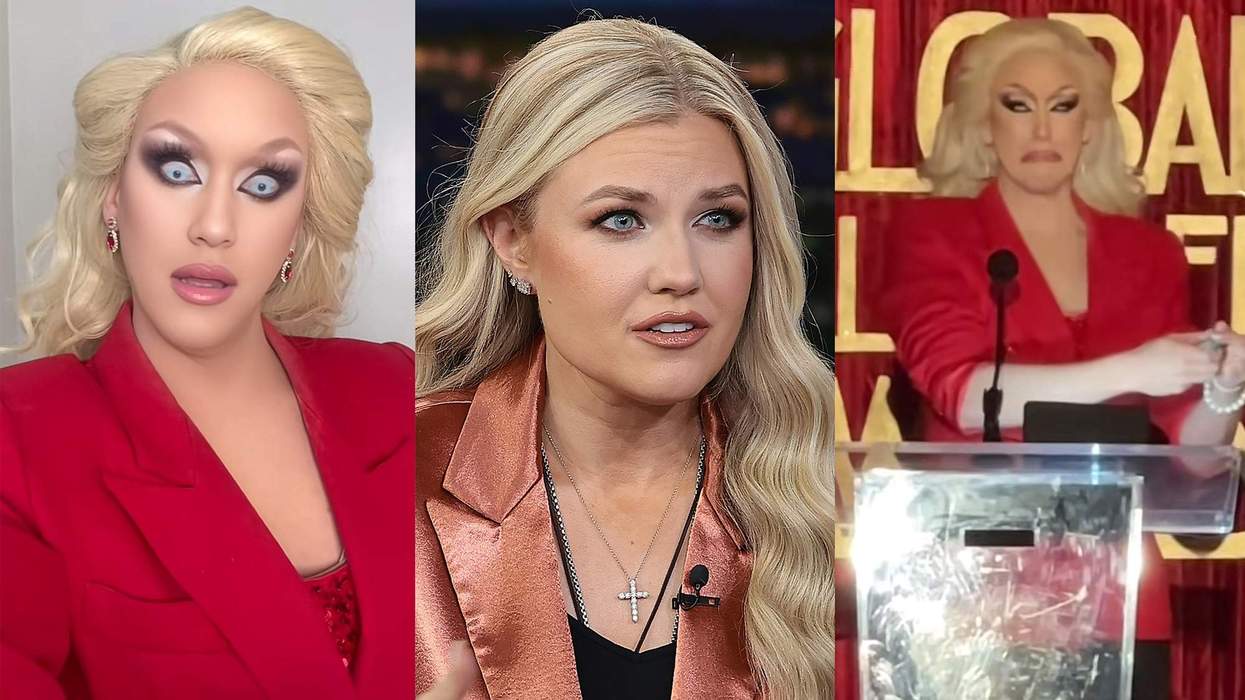In most situations where math is involved (like, say, getting enough delegates to be the Republican nominee) there are actually a finite number of realistic and possible outcomes. Similarly, as a problem becomes more and more constrained mathematically, fewer possible outcomes remain.
For instance, after today's voting we will know whether Republicans are definitely headed to a brokered convention, or just probably.
Unless Donald Trump wins both winner-take-all states of Florida and Ohio, there are few ways he can reach the magic 1,237 delegates that would allow him to win the nomination outright. Even if he wins only one of those states, Trump would need big wins in remaining states with proportional delegates in order to take the nomination on the first ballot, where 95 percent of the delegates are required to vote for a particular candidate.
It might be possible for Trump to win without having earned 1,237 if the "free" delegates from candidates who dropped out of the race vote for him, but this seems unlikely given the leverage that holding on to your delegates grants at the convention.
By and large, delegates are the party faithful, whose goal is supporting it and putting a Republican in the White House. Trump is a threat to party establishment, but not to winning a general election. Voting for Trump is anathema to most of them. In short, there is little chance that Donald Trump could win a brokered convention.
Math is a cruel mistress for Mr. Trump. While he looks to be the winner in Florida, according to polls, Ohio is a dead heat. With John Kasich winning his home state, it means he'll stick around instead of dropping out, and the governor will split the vote and perhaps win a few states. In this scenario, The Washington Post reports Trump would need to win 60 percent of remaining delegates to clinch the nomination. That's a lot of delegates.
Worse, even if Trump wins both and remains viable, The Washington Post reports he would still need to capture 54 percent of the remaining delegates to reach 1,237. And he'd have to beat Ted Cruz one-on-one to do it.
That's because a Trump win in both Ohio and Florida means Kasich and Florida Sen. Marco Rubio will likely drop out of the race. The cofounder of the Princeton Election Consortium wrote in The American Prospect that his models show this scenario is the Stop-Trump movement's best chance. In most polling, the Texas senator beats Trump in a head-to-head match-up, meaning that taking 54 percent of the delegates and clinching the nomination seems improbable.
As a result, the Republican convention looks to me as almost certain to end up brokered, and Donald Trump is almost certain not to become the nominee.
That leaves four possible options: Cruz, Rubio, Kasich, or someone who isn't even running (e.g. Mitt Romney). Each option is like a different form of political suicide for the Republican Party.
Cruz is despised by pretty much everyone in Congress, except some fellow Tea Party radicals. A few senators, like Lindsey Graham, are grudgingly suggesting Cruz as the only alternative to Trump. At the same time, so deep is Cruz's unpopularity that there are Republicans in Congress threatening to support Trump.
Cruz's electability is another question mark. He resonates with social conservatives and Republicans who are angry with the system. However, his oily, smarmy, televangelist oratory style is a turnoff to millennials. Additionally, Cruz eagerly embraced endorsements from antigay evangelicals, and he spoke at a conference hosted by a pastor who support government-sponsored executions of LGBT people. A spokesman later called that appearance a "mistake," but Cruz hasn't said it himself. In a day and age where approximately 75 percent to 80 percent of Americans have an LGBT friend or family member, a smart Democratic strategist will make this into a significant campaign issue.
Rubio and Kasich appear more moderate than Cruz by comparison (even if neither of them actually is). Their unfavorability ratings are nowhere near as bad as Trump and are significantly better than Cruz. In fact, if the only criteria for success at a brokered convention was electability, one of them would eventually prevail. The problem for both is the same elephant that got them into this mess: Donald Trump. If Trump narrowly misses winning the nomination outright and then loses it to a candidate who won only a few states (to Trump's 25-30), it is difficult to imagine The Donald taking defeat gracefully.
Trump would have a very hard time running as an independent if he lost the convention, due to state-level campaign filing requirements. Still, his supporters are mad as hell and not going to take it anymore. So if The Donald asked them to make trouble at the convention, a lot of them would take him up on it. The result would be ugly. Think Chicago in 1968.
To Trump's supporters, an insider campaign that nominated Kasich or Rubio would be an act of war that could only end with the absolute annihilation of the Republican Party establishment. Trump's supporters believe the system is broken and that the Republican establishment doesn't care at all what the base thinks. Nominating someone who almost no one voted for would be a tacit admission that the party is damn well going to do whatever it pleases, regardless of what rank-and-file Republicans want.
Expect then that a Kasich or Rubio nomination leads to a revolt by the base, and those polls showing how electable they are become meaningless. If even a fraction of Trump and Cruz supporters sit out the election, the Democratic candidate will win, especially given the electoral math showing the Democratic candidate starts with 230 Electoral College votes "in the bank."
When choosing between Rubio and Kasich, the party establishment would probably lean toward Kasich. Given Rubio's gaffes and Kasich's campaign being reliably measured and moderate-sounding, and Kasich being the governor of (arguably) the most important swing state in the general election (Ohio), this means Kasich represents the sane, rational, and logical choice for the party establishment.
But nothing in this campaign has been any of those things so far. Which brings us to the next option for the Republican Party.
All the more devastating would be the convention nominating someone like Mitt Romney, who didn't even run. He did just file election paperwork, however. Nominating Romney would be like finding out the guy who won the PowerBall jackpot was Cleatus, the lottery commissioner's half-brother. And Cleatus hadn't even bought a ticket.
Clearly, the fix was in.
For a party already dealing with a base that is furious with "the establishment," this would be worse than picking Rubio or Kasich.
The Republican Party is in its own Kobayashi Maru scenario. Donald Trump is an unelectable nightmare of a candidate who would hurt a lot of down-ticket candidates, and draw out the Democratic base. Ted Cruz isn't liked by his colleagues and would have a hard time appealing to any of the people the Republican Party needs going forward if it is to remain viable. Kasich and Rubio aren't any more electable than Cruz, simply for the internal party riot their nomination would probably cause. Mitt Romney is even less electable because of the revolt his nomination would definitely cause.
So what seems likely to happen? There will be a brokered convention. Trump will not win the nomination. Party elites will likely end up choosing whether to support Cruz and risk losing the general election (because, well, he's Ted Cruz: To know him is to hate him) or John Kasich, and setting of a civil war inside the party that might cost them the election anyway.
Either way, I'm getting some popcorn -- and renewing my passport, just in case.
BRYNN TANNEHILL ;graduated from the Naval Academy in 1997 before serving as a campaign analyst while deployed overseas. She later worked as a senior defense research scientist in private industry; she left the drilling reserves and began transitioning in 2010. Since then, she has written for OutServe, The New Civil Rights Movement, Salon, Everyday Feminism, The Good Men Project, Bilerico, and The Huffington Post.
















Charlie Kirk DID say stoning gay people was the 'perfect law' — and these other heinous quotes
These are some of his worst comments about LGBTQ+ people made by Charlie Kirk.